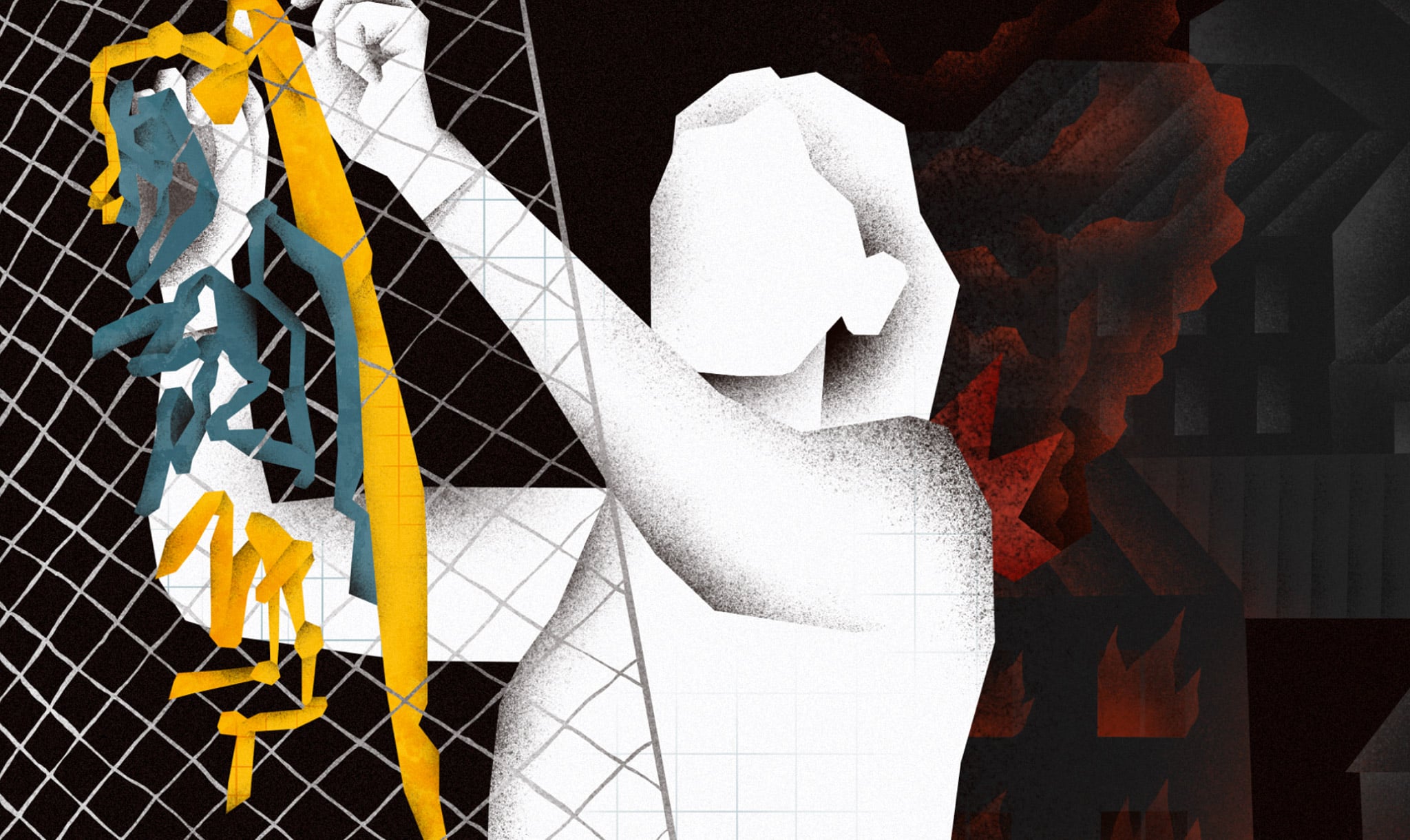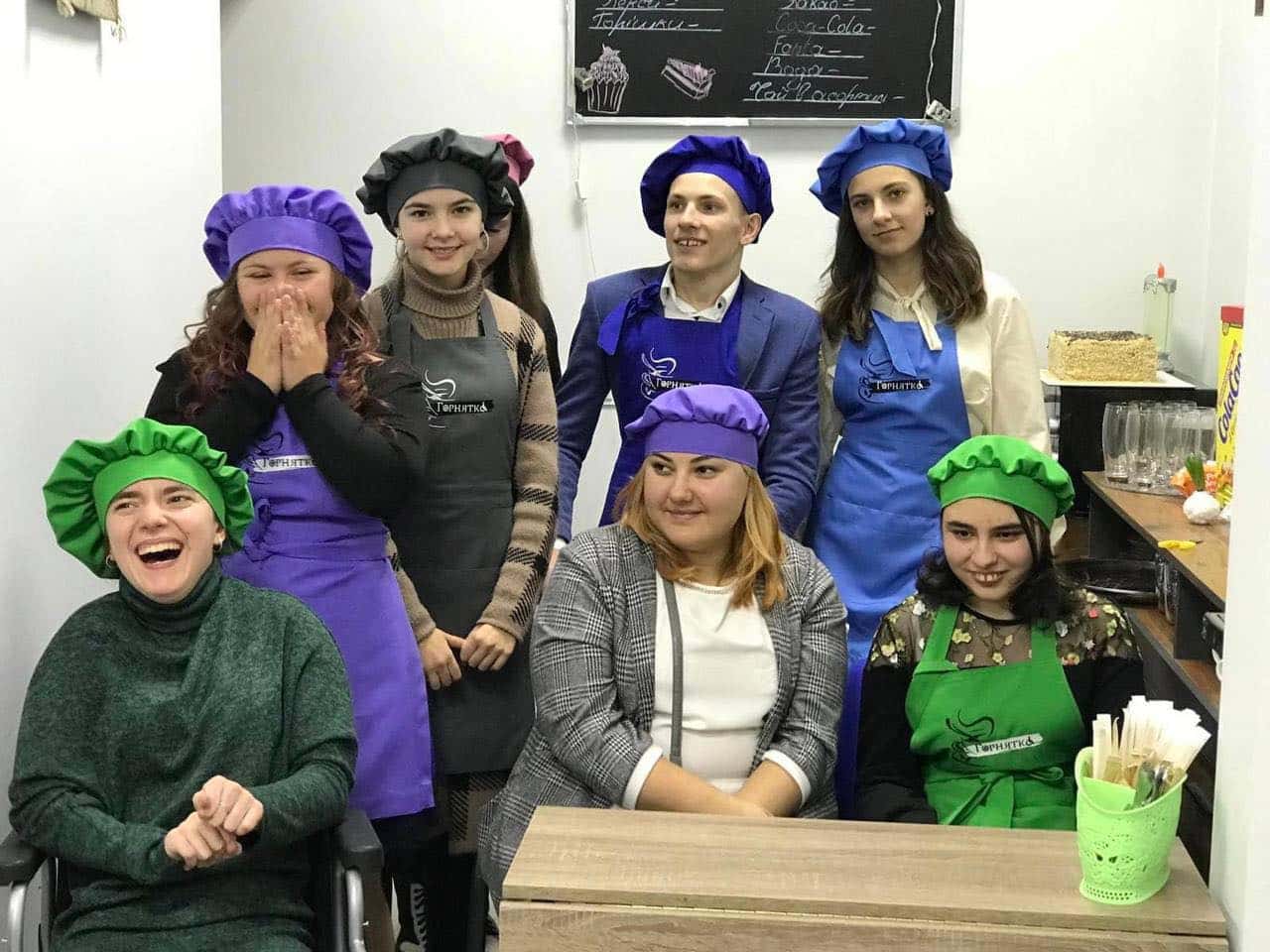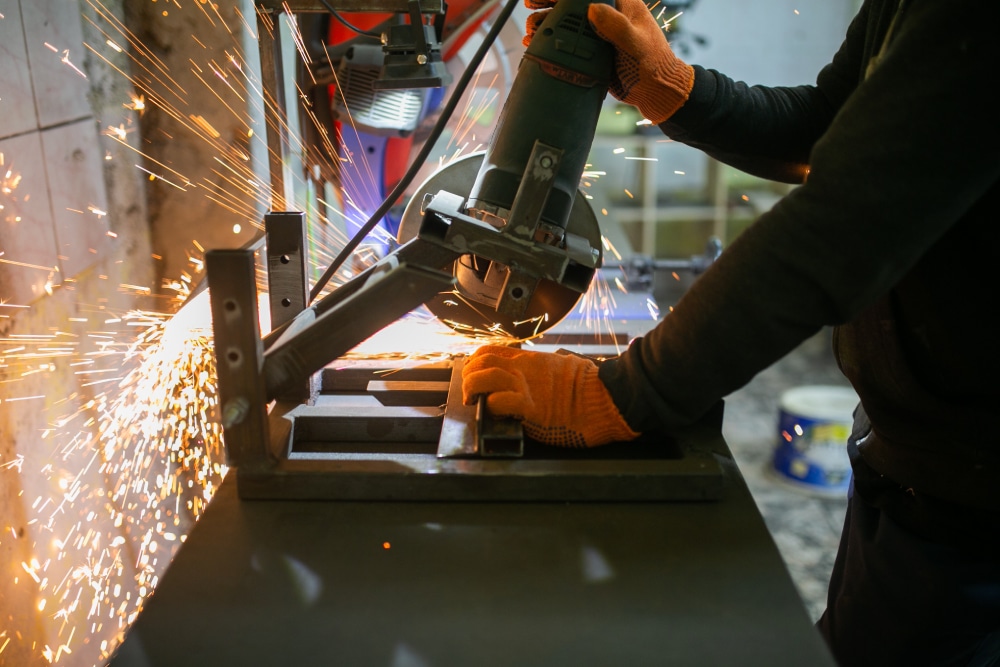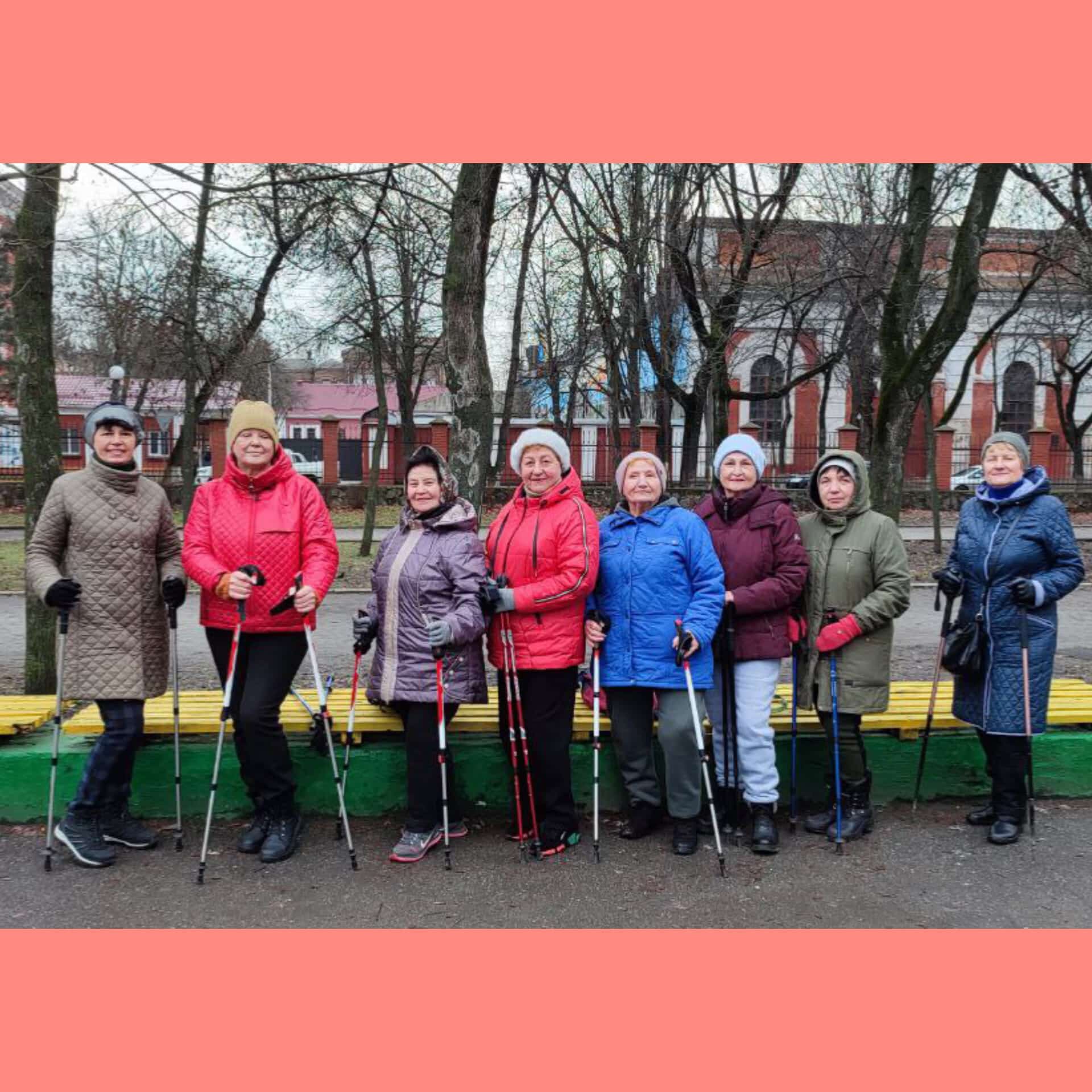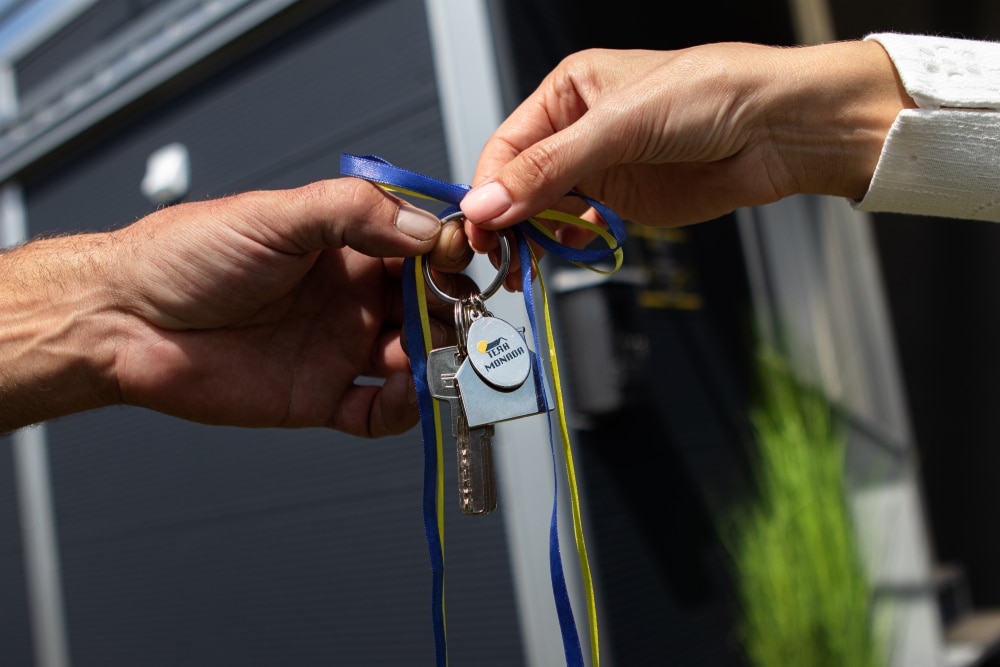In the first days of the full-scale invasion Alyona Filimonova and her family found themselves under the Russian occupation in Bucha. A few weeks later due to daily shelling they decided to leave for a safer place. Having gone through complicated humanitarian “green corridors”, the family reached the government-controlled territory of Ukraine. After Bucha was liberated, they came back home. Alyona is now volunteering for “Buchanski pavuchky” (the Ukrainian for “Bucha spiders”- translator’s note). Her main goal is to help the military the way they helped her.
***
In March 2022 Alyona and her family decided to leave Bucha. They spent two weeks hiding in the basement of their house, not knowing that they were already under occupation. There was no connection. When they learned about ‚green corridors‘, they quickly packed their things, hurriedly taking two cats with them. Following the advice of acquaintances, they put white stripes made of fabrics around their car, sticking patches of fabrics onto their clothes, which was supposed to let others understand that they were civilians.
Alyona heard about Russians shelling evacuation cars, so she wanted to do everything she could to save the life of her five-year-old son. She sat in the backseat while her son was sitting between her legs so that he could lie down on the driver’s armrest. Her thinking was that if shooting were to have happened, the bodies of other passengers would have protected her son from bullets.
Having taken a deep breath, Alyona, her family and parents began to slowly drive past the streets of Bucha. White stripes on the car were fluttering in the cool March wind, with gusts of wind entering the car through open car windows. They were driving slowly. Windows were all winded down. All history from Ukrainian chats and photos from their past were erased from the phones.
While driving into the unknown and hiding her son, Alyona was emotionless, looking at the streets of her native Bucha. She saw a house on fire where her favorite shop was located, a beauty salon was demolished, and a large shopping mall was burning down. Burnt cars with bullet holes were strewn across the road. It reminded her rather of a movie scene than of a quiet small town she used to know.
They finally made it to the column of a few dozens of evacuation cars also driving with windows winded down and white stripes hanging over them.
They were allowed to pass. First cars in the column slowly pulled off. They covered a distance of a few feet and they came to a halt. A Russian armored personnel carrier was moving straight towards the column with its barrel pointed at the cars.
“It is not that simple“
Alyona Filimonova is a native of Bucha. She has a family and raises her 6-year-old son, Matviy. This year he will go to school for the first time.
While reading disturbing news about a possible full-scale invasion, she would not believe that something of the sort might really happen. Drinking coffee with a friend of hers, Alyona said that “Russia would not attack”.
Prior to the Russian full-fledged invasion, Alyona worked online with a Russian company, helping it launch different educational courses. On February 22, her project came to an end. After years of work, she befriended her Russian colleagues. She spoke with them everyday, making plans to meet up the following summer and spend a vacation somewhere abroad.
“During our cooperation I thought I found virtual friends. There were five of us, five girls. I was from Ukraine, the others were from Russia. Our friendship developed. We sometimes spoke about war, but the girls would always convince me that when the Revolution of Dignity began, they were supporting us. Back then I thought I was speaking to conscious Russians, I did not feel that they would side with the Russian regime”.
On February 24, Alyona woke up earlier than usual, heading to the kitchen to drink some coffee. On the internet she caught up with the news about what was going on that morning. Having stepped outside her house, she saw her parents who greeted her with the words, “Well, the war has broken out”. She heard the sound of explosions in the distance, Alyona went back inside to wake her husband up.
“Starting from 11 in the morning there was no longer silence. Explosions were heard all the time. I switched on cartoons for my son at full blast”.
The news broadcasts were full of messages about Russian paratroopers landing in Hostomel and the local airport burning. The outskirts of Bucha, where Alyona lived, are separated from Hostomel by a small wood. In the afternoon helicopters and fighter jets began whizzing over her house.
“We made a mistake just like many others did: we thought it would all be over in two or three days. We therefore took a decision not to leave town”.
Alyona texted her Russian colleagues, saying that their country attacked Ukraine. The answer read “Well, it is not that simple”.
“They then called me a Nazi and a Banderovite (a pejorative word used by Russians to refer to Ukrainians – translator’s note) They told me I had to live with the fact that Ukraine had been bombing Donbas for 8 years. I deleted myself from the chat for good”.
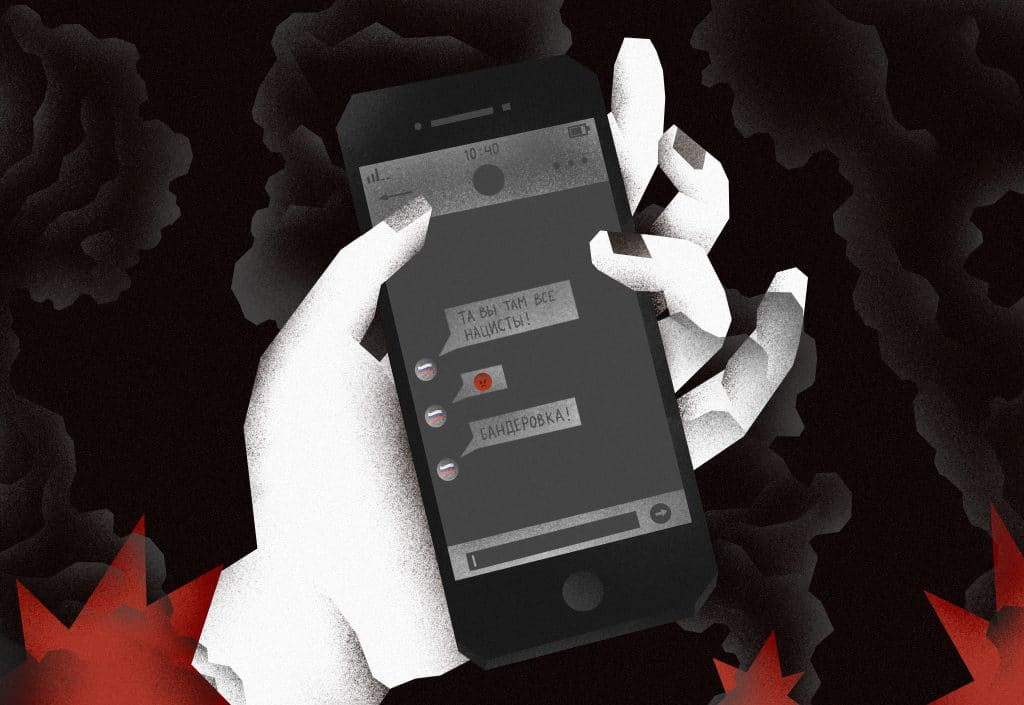
We were afraid of explosions dying out
The family managed to buy basic necessities and to set up a small living space in their basement. From the news they heard that Russians were already forcing their way into Bucha. Their house was shaking from incessant explosions, while their minds refused to comprehend the whole scope of danger.
“After descending into the basement, we were really afraid. It felt like electricity going through your body with every explosion. I was lying and holding my son tight”.
While living in the basement, the family were waiting for Russian troops to be pushed back from town. After a while power was cut off due to shelling. It got cold. Mobile connection was only available outside. To catch it, one had to lift up the phone high above the head. There was no access to the internet. The family cooked their meals on gas cylinders. They also had a power generator, but it was dangerous to switch it on, since Russian soldiers with automatic rifles might have come to the sound.
One day a shell landed on their neighbor’s house. It caught fire. Alyona was afraid the same fate would befall their house, so she tried to call firefighters. It then turned out that the district of Bucha where they lived was already occupied. Firefighters could not make it to them.
“We then got scared of silence. Explosions were the indicator of someone fighting for you. They meant that you were not abandoned, facing the enemy on your own“.
Our acquaintances from neighboring high-rise buildings told us they were visited by Russian soldiers who came to wish them a happy International Women’s Day.
“They said Russians behaved differently. Some soldiers beat residents of apartments up, rummaging through their stuff, while others did not hurt anyone. We had no idea what was going on down there. We were sitting in the basement, thinking that these were warring troops who were fighting one another”.
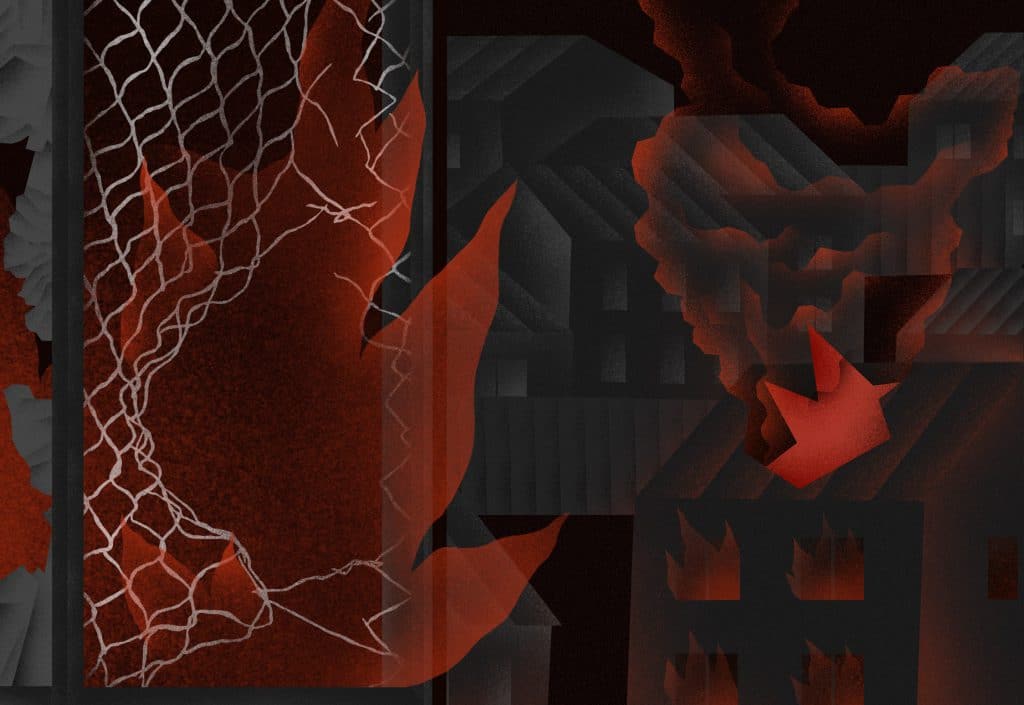
White stripes
On the morning of March 11 they decided to leave. On the evening of the same day they learned that soon after they had left their house it was visited by Russian soldiers.
“By then we already knew that cars were shot. On March 9, a humanitarian corridor for civilians was announced. The car of my acquaintance was shot by Russians as soon as she tried to pull off from her yard“.
However, Alyona decided to take a risk. She took her son into the car with stripes hanging over it.
“I figured if they were to shoot us, our bodies and the metal of the car would protect my son from bullets. In hindsight, I understand just how absurd my thinking was after I saw cars pierced with bullets”.
Their car was 37th to join the column driving through the ‚green corridor‘. Buses were first to drive through, followed by buses with the wounded who were taken from hospital. All of a sudden, the column came to a halt. An armored personnel vehicle was moving straight towards them. For some time it kept pointing its barrel at one or another car. Eventually, the column was allowed to keep moving.
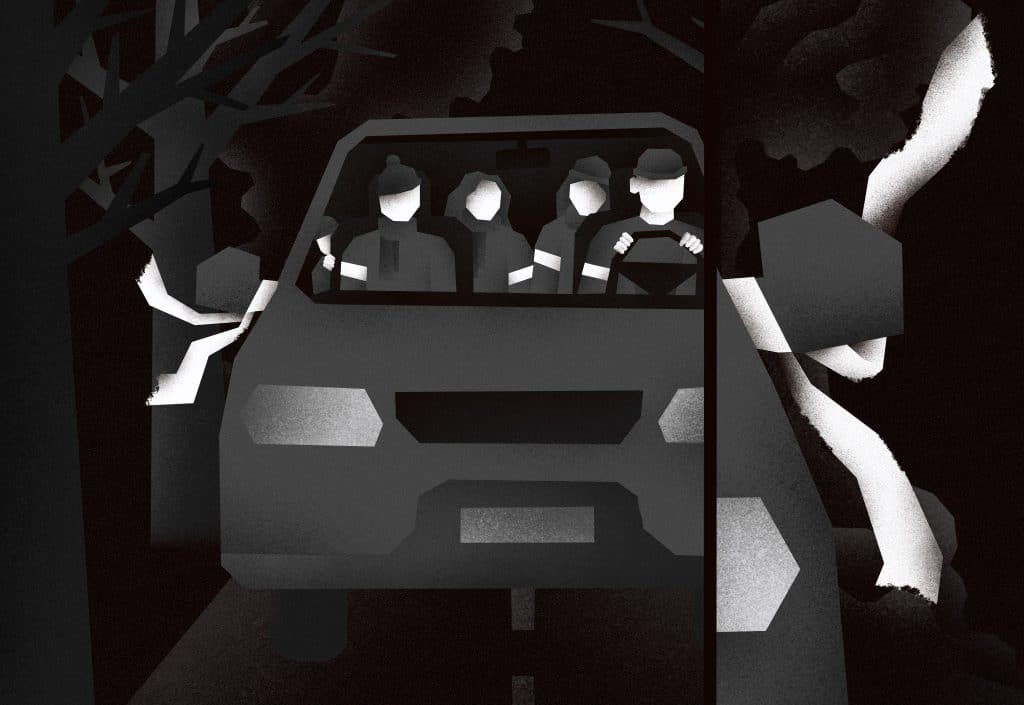
“My father grabbed the steering wheel so tight that his hands went white. I don’t think he would have let it go quickly if he had been forced to”.
At the exit from the checkpoint Russians did not let the column through. People who were in the head of the column were moving back, urging the others to stop moving‘. The bus with the wounded began moving back. Alyona and her family decided to follow it. A few cars followed suit while others returned to the city.
On Zhytomyr highway a man jumped out of the woods and began shouting, “Do not go there. Russians are shooting at cars. We will show you the way“.
“They led us through some villages, fields and forests. We passed by several Russian checkpoints. When we reached the village of Bilohorodka, we saw Ukrainian troops. My son was sleeping in my lap, while I wanted to jump out of the car to kiss and hug everyone there“.
Alyona felt as if she had taken a deep breath in Bucha and managed to exhale only after she made it to Odesa highway. Her family were moving to her grandma in Vinnytsia province. On their way there they wanted to drop by a supermarket to buy some food. The first 10 minutes they spent sitting in the car in a parking lot, exchanging glances and being afraid to get out.
“It felt so weird to know that people could just go shopping at a supermarket. Afterwards people asked us whether we could shop in Bucha. I said we barely could leave the basement, let alone do the shopping!”.
The first three weeks the 6-year-old Matviy was afraid to leave the house or make noise lest “bad people should hear and come for him”.
Return
Bucha was liberated on March 31. Alyona’s family returned home on May 11. Their house was not damaged while they were away. Some of the windows were smashed by debris from around.
Family set about arranging things in the house and in the yard. Matviy’s kindergarten was hit by a missile. Alyona could not bring herself to constantly sit at home and check the news, so she decided to keep herself busy.
An acquaintance of hers offered her to weave masking nets for the military. A chat was launched through which all the volunteers were recruited. One of the city schools offered its gym for the volunteers as school children had their summer holidays. A small center for humanitarian aid was already operating there.
After everyone got down to work it turned out that no one had ever woven nets before. Therefore, volunteers checked a few videos on YouTube, also asking other volunteers for advice. After a month the working process was established. People brought fibers while helping cut the nets. With time forced migrants joined in.
At that time children were playing nearby, constructing huge huts out of humanitarian clothing.
“After weaving the first net and passing it on to the military, we felt really nervous. We thought they would be mad at us for their low quality. We did not know if they were any good. We are now thinking back to it and laughing”.
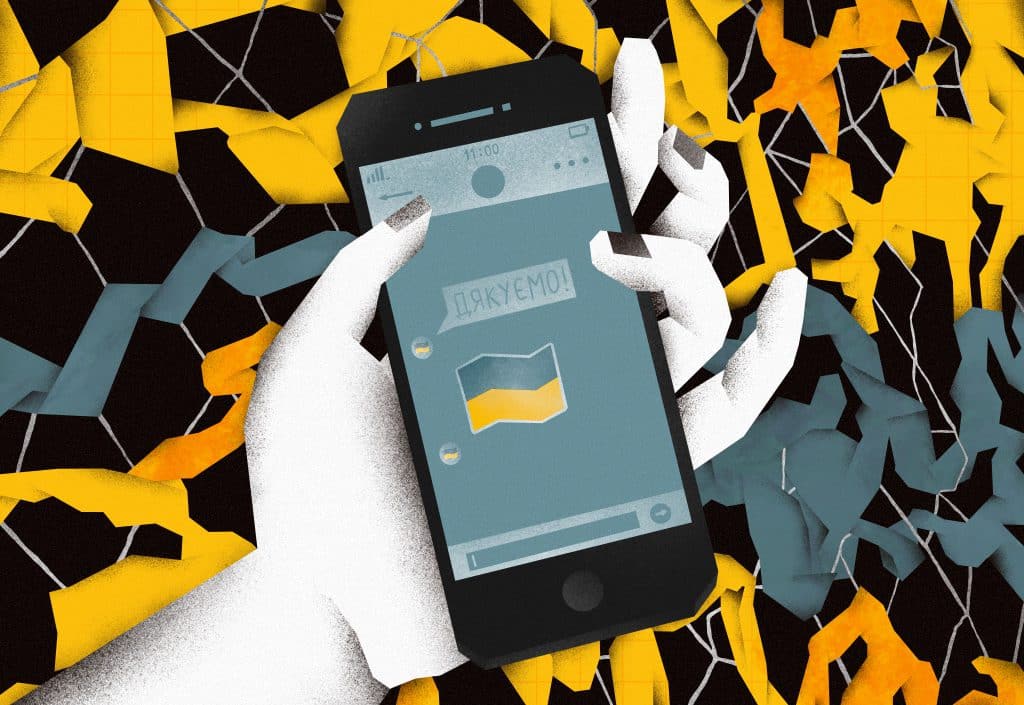
At first, the female volunteers wanted to call their team “SpiderMom”, since the majority of them were women with children. However, eventually they were joined by a man, so they stick with the name “Buchanski pavuchky”.
“Because we are weaving these nets just like spiders days on end”.
Eventually they decided that weaving nets was not enough. It is for this reason that they began producing camouflage suits, caps, mittens, pillows, fleece cushions to sit on, underwear, pants for the military at hospitals and trench candles. One elderly woman presented the volunteers with two old sewing machines. They learned to sew all by themselves.
“Our joke has it that should we be tasked to make a tank out of metal scrap, we will be able to pull it off”.
The volunteers work thanks to the donations from benefactors and people not indifferent to their cause from all over Ukraine.
Currently there are about sixty people on the team. Some of them can work during the day, while others in the evenings. Everyone has their own duties, so the working process is well established. There is no room available in the gym, which makes the volunteers search for additional premises.
Alyona says that her main task now is to help the military and make her own contribution to the victory. She has put her life on hold.
“I want to be part of it. I cannot sit idly by, doing nothing. Our soldiers are fighting on the front so that we can carry on with our lives. If there is no one fighting out there, there will be no us. I got a real taste of what I’m saying. Had there been no soldiers back at the beginning who were protecting me in Bucha, there would be no me. We will work for as long as it takes. Until our victory”.

